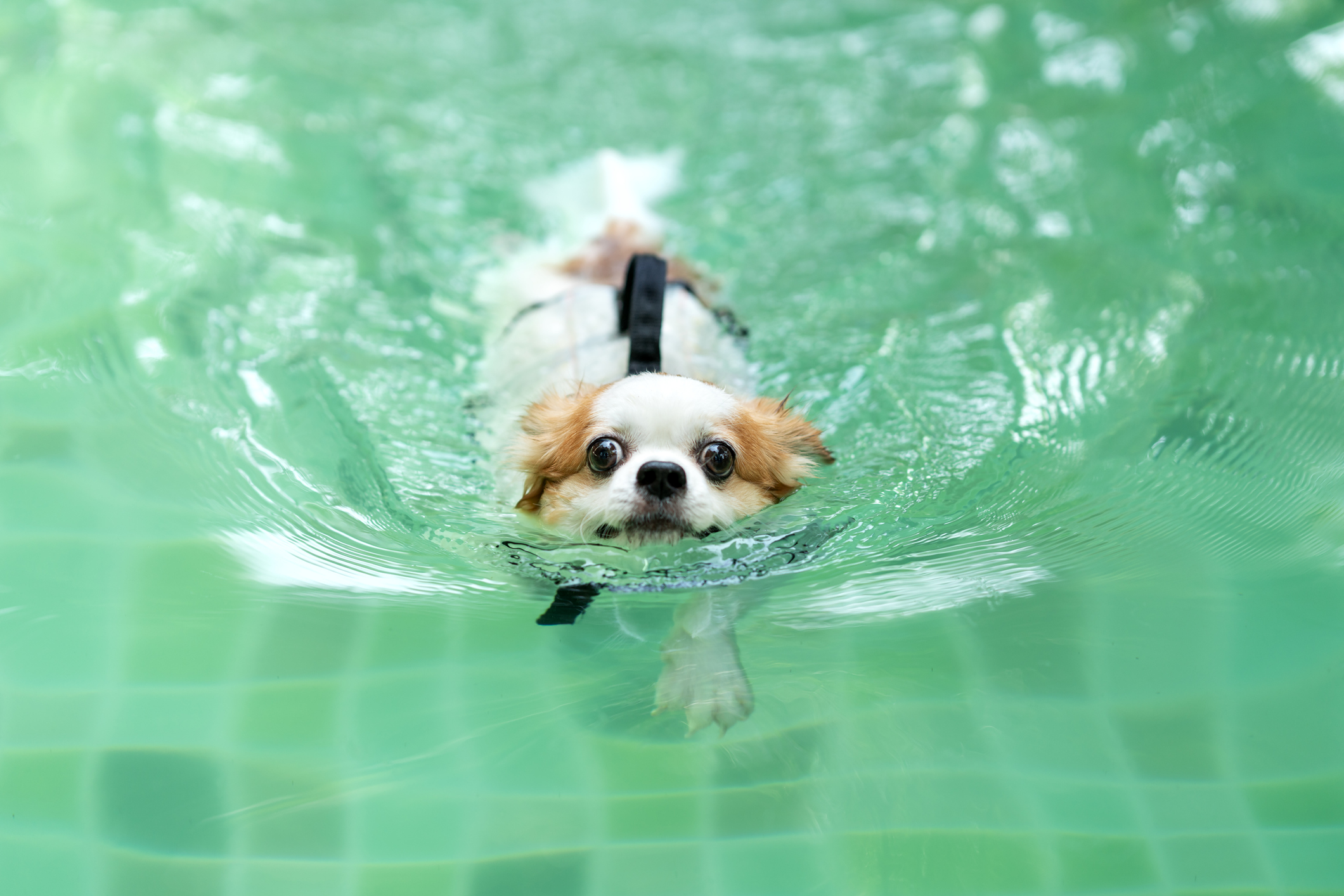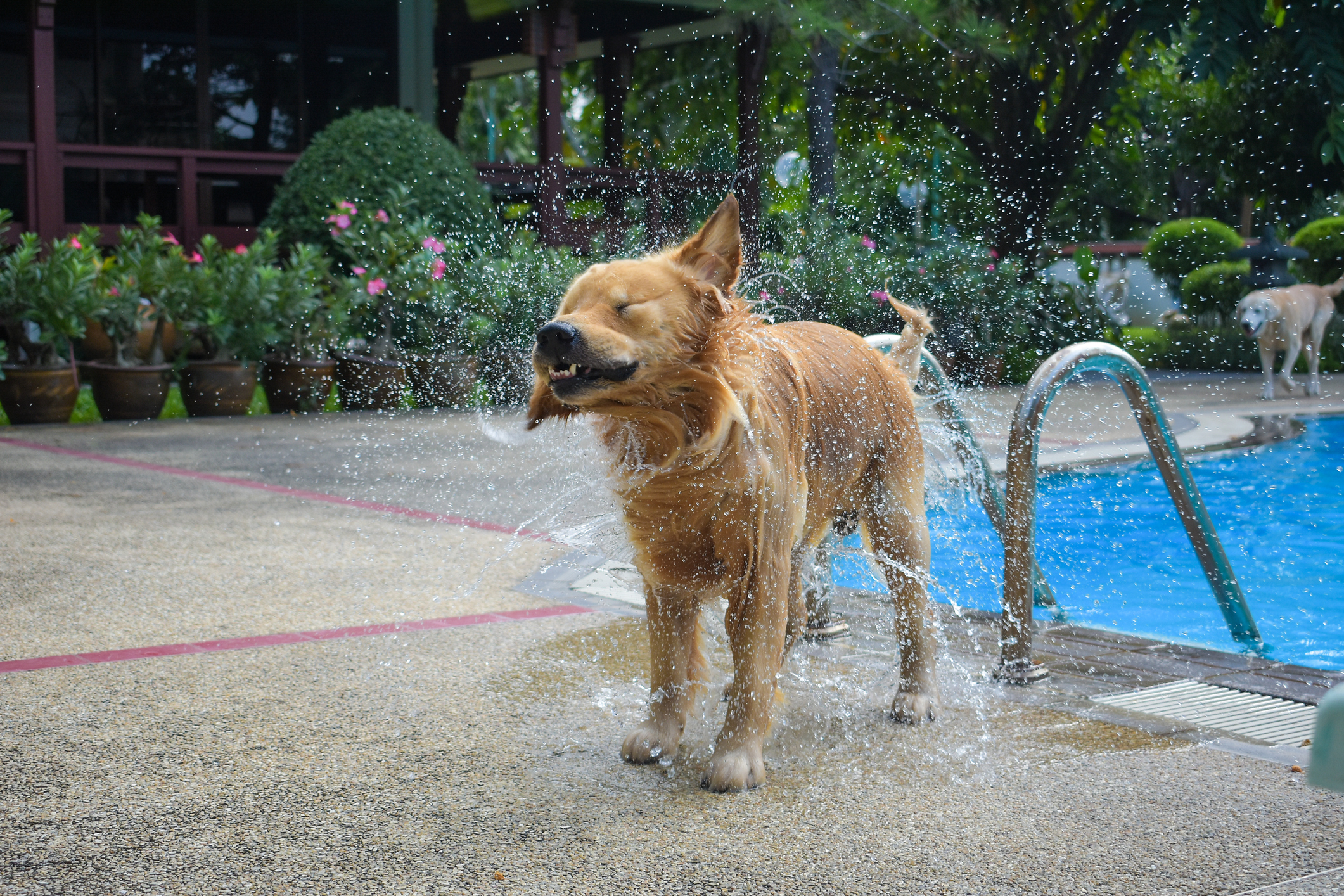
Is Chlorine Bad for Dogs? Understanding Pooch Pool Safety
Summer is finally here, which means it’s time for a dip in the pool. It’s tempting to jump right in without a second thought. But as you enjoy the refreshing water with your dog, concerns might be floating at the back of your mind. You’re probably wondering: Is it safe for my dog to swim in all these pool chemicals?
The short answer is yes. If your pup is a strong swimmer, by all means, let them go for it! A splash around and even a couple sips of pool water are unlikely to hurt dogs. Just remember the safety guidelines for humans also apply to your furry friend. Even though ingesting small amounts of chlorine aren’t extremely harmful, you should still keep everyone’s health in mind. Below are some helpful tips for general pool maintenance and how you can keep your dog safe this summer.
Pools are safe for dogs and humans alike
One of the biggest concerns around pool chemicals is ingestion. Dogs can easily mistake your pool for their water dish and will inevitably help themselves to a drink on a hot summer day, especially if there’s no bowl of fresh water on the pool deck. If your dog takes a few sips or swallows some water while swimming, there’s no need to be extremely alarmed; a little is unlikely to hurt them. However, when exposing your dog to the pool for the first few times, you should teach them to not drink from the pool as a safety precaution.
The best thing you can do for your dog is regularly check the chlorine levels of your pool. Chemical imbalances put dogs at a higher risk of becoming ill from swallowing pool water. A well-maintained pool will help your pup stay healthy all summer long.
Of course, there are a few symptoms of chlorine ingestion to look out for. Call the vet if your dog spends a lot of time in the pool and vomits frequently. This can be a sign of too much chlorine consumption. Other symptoms may include an irritated lining of the intestinal tract, often leading to diarrhea.
Less chlorine isn’t always better

If chemicals are bad for dogs, it’s reasonable to assume that it’s safer to get rid of the chemicals. However, this can actually make matters worse!
Pools need proper levels of chlorine to keep the water clean and free from bacteria. If chlorine isn’t what harms your pup, it could be the dirt and parasites that get tracked into the pool from outside! As contradictory as it sounds, more chlorine is actually better than less for your dog.
Pros and cons of saltwater pools
If you’re worried about putting chlorine in your pool, there are other options. Choosing a saltwater pool eliminates worries about your dog swallowing harmful chemicals. Saltwater is also gentler than chlorine on your dog’s eyes, skin and fur and can serve as a more natural alternative to pool cleanliness.
However, there are still a few drawbacks associated with saltwater pools. Drinking too much saltwater can make your dog just as sick as if they drank too much chlorinated water! Common effects of saltwater ingestion include vomiting, diarrhea and dehydration. Excessive amounts of saltwater can even lead to an electrolyte imbalance, which can be fatal for dogs if not treated right away. Thankfully, such a condition is rare, because your dog would have to ingest a lot of saltwater to get that sick.
Pool habits for your puppy

Whether you choose a chlorinated or saltwater pool, there are many things you can do to keep your pup safe as you swim and splash. A great way to discourage your pup from drinking pool water is to keep a bowl of fresh, cold water on the pool deck. You should also always supervise your dog when they’re in the pool, even if they’re strong swimmers. This way, you can catch them sneaking a sip and redirect them to their bowl.
To avoid clogging your pool filter and reduce how much dirt and dander makes its way into the water, brush your furry companion and hose them down prior to swimming. These contaminants can throw off the pH balance and prevent chlorine from disinfecting the pool water properly. A quick rinse-off is beneficial after swimming, as well, to thoroughly wash the chlorine out of your pup’s fur and prevent skin irritation.
These safety tips should ease any concerns you have about protecting the furry members of your family. Routine checks on the pool filter and chlorine levels are all it takes to keep your dog healthy. Next time you go for a dip with your pooch, you can focus on having fun in the sun!


